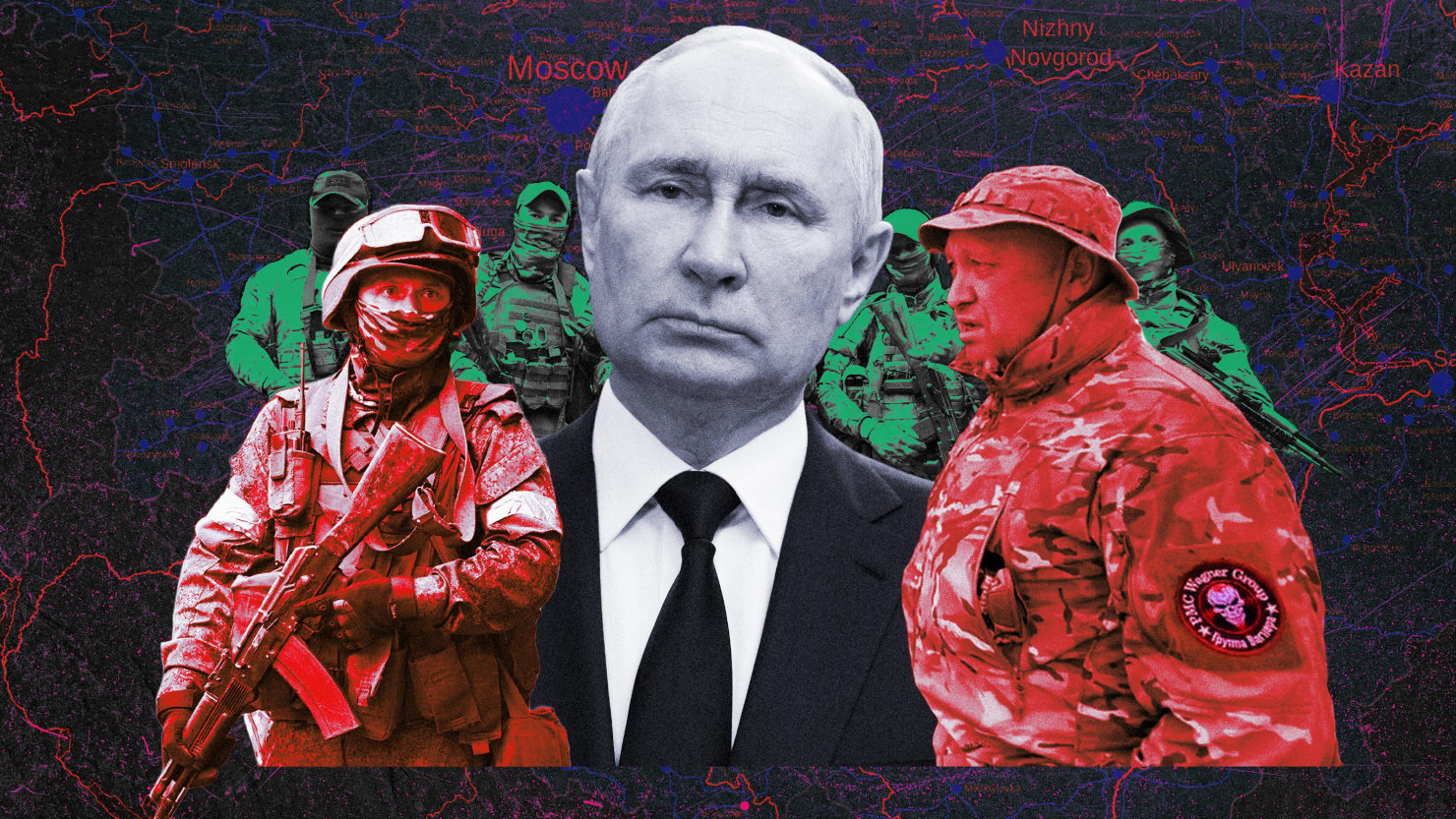Vladimir Putin’s spokesperson promised fireworks in the run up to remarks from the Russian president late Monday night in Moscow. Putin, however, did not deliver.
Kremlin mouthpiece Dmitry Peskov had said, “These statements, without exaggeration, will determine the fate of Russia.” But, nope.
A pale, gaunt-looking Putin instead spoke for just a few minutes. But the most substantive part of his remarks were not what he said but, rather, what he did not say.
His words were actually not just predictable, they were almost pathetically predictable. He spoke of the bravery of his security services in putting down the rebellion.
That did not actually happen. But no matter.
The neo-Stalinist in him has always had a taste for rewriting history. He said “Organizers of this rebellion will be brought to justice, this criminal activity which is aimed at weakening the country.” He didn’t mention Yevgeny Prigozhin (the Wagner Group leader and the organizer of the mercenary uprising) by name, but as we sometimes say here in the United States, if I were Prigozhin, I would not buy any green bananas.
The latter part of the very brief statement was directed at Prigozhin’s Wagner soldiers. Putin reiterated that they would be forgiven if they simply reported in to the Ministry of Defense and signed up for the Russian military, renouncing the Prigozhin plot. What was unsaid, of course, was that hours earlier Prigozhin had made a statement in which he indicated that the vast majority of his troops had no intention of doing so.
Putin’s call to the Wagnerites to effectively switch sides in the dispute did not, however, deliver the message of strength that Putin no doubt had hoped for.
It was weak. It was a plea. The fact that he had to go on the air and essentially reiterate his request that they stand down suggested that this particular crisis is far from over, and that the Russian leader is far from certain how it will ultimately play out.
That he came and went so quickly, that his statement did not live up to advance billing, that he could not announce conclusively that the crisis was behind him were all factors that underscored Putin’s freshly revealed vulnerability. But perhaps most damning of all was the fact that in his attempt to reframe the view of the past couple of days in Russia, he confirmed that his leadership had faced its most serious challenge in over a decade, perhaps ever. He was acknowledging that a small military force had turned on him and the country and triggered a serious crisis.
Further, in so doing, he was drawing even more attention to Prigozhin and what he did. Prigozhin’s statement earlier in the day went to considerable lengths to assert he was not seeking to challenge Putin. He argued that a Ministry of Defense decision to shut down the Wagner Group was the trigger for his actions and all he sought was to redress what he saw as a betrayal by higher-ups in the Russian defense establishments.
But of course, Prigozhin had prefaced his march on Moscow with public statements that Putin’s rationale for attacking Ukraine has been a lie. And the fact that his men were so unhappy that they were willing to risk an armed confrontation with the rest of the Russian military sent yet another clear message that the war in Ukraine is going very badly.
The fact that the Russian military did not challenge him in any serious way as he and his forces seized the military’s southern command in Rostov-on-Don, and then as they marched to within 100 miles of Moscow raised additional questions about why.
Was the military divided? Were they growing more fed up with the conduct of the disastrous war in Ukraine?
Finally, Putin’s reference to the deal that Belarus’ Alexander Lukashenko helped broker sent another message: When challenged, Putin did or could not strike back with the force that’s been long associated with him. He negotiated with subordinates who were marching on his capital.
What did that mean about other areas in which he was challenged? What did it say about those who argued Putin would “never negotiate” with regards to Ukraine?
Consequently, while Putin’s remarks lasted only a few minutes, his message was considerably longer. While he sought to convey strength, he showed weakness that many of his people had never seen before.
Prigozhin may not have actually seized Russia’s capital. He may not have sought to attack Putin’s government. But he struck a blow against Russia’s leader and its government that was far more damaging—if unintentional.
He obliterated their credibility. He struck the foundations of almost a quarter of a century of Putin rule in ways that left it cracked and vulnerable. Like Putin’s speech, he resolved nothing but instead posed new questions that will haunt Russia for the foreseeable future.

